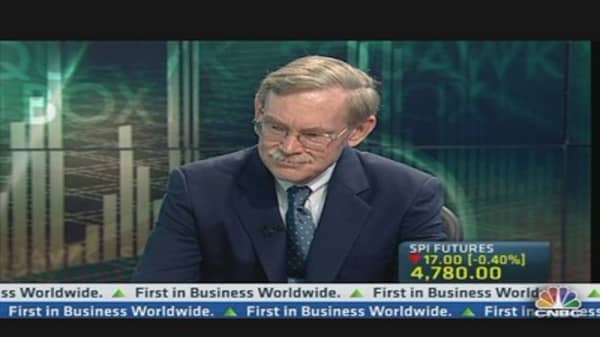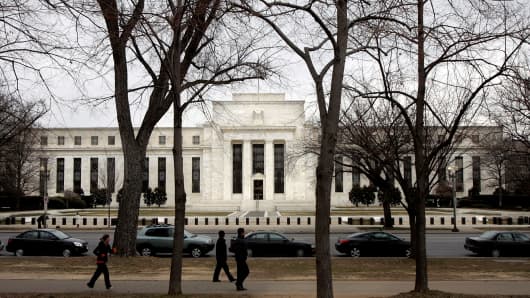The rolling back of the U.S. Federal Reserve's massive quantitative easing program could be a major issue for all economies, according to former World Bank President Robert Zoellick, who says the move would force countries to look at fundamentals for growth.
"[Fed] tapering is a big issue. I think for all economies - U.S., Europe, China, Southeast Asia - the fundamentals still go back to structural reforms," Robert Zoellick, Distinguished Visiting Fellow at the Peterson Institute for International Economics told CNBC Asia's "Squawk Box" on Tuesday.
(Read More: Rising Rates Have the Attention of Stock Market)
He added that "The question will be as the Fed eventually moves away from the monetary easing policies, what will be the effect of the [withdrawal of the wall of money that's moved around the world?"
The possibility that the U.S. Federal Reserve could taper its monthly $85 billion bond buying program later this year has already sent jitters through stock markets, resulting in a sell-off in U.S. Treasurys and led to wild swings in emerging market currencies.
(Read More: Fed Tapering Could Mean Instant Problems for China)
Zoellick, who served five years as the president of the World Bank up until 2012, said there's been a big structural shift in emerging market economies, which used to depend on strong U.S. demand for their products.
"In the past when you had a U.S. recovery that boosted some of the exports... [Now] you've got a movement to more domestic demand - it's going be less export led growth, and that's obviously the huge story for China's change under the new leadership," Zoellick said, referring to the Chinese government's push towards consumption led-growth.
In Japan, recent monetary and fiscal policies that have spurred optimism in the economy could just be a "sugar high" unless the government really invests in the "so-called" third arrow of structural reforms, Zoellick said.
"The danger is in the past sometimes Japan just used currency devaluation to help its export sector, and when I worked with the Japanese 20 years ago... Japan never was really willing to open up its services market and other areas that would increase productivity - that's the third arrow," Zoellick said.
Last week, markets were largely disappointed with Japanese Prime Minister Shinzo Abe's unveiling of a long-term plan dubbed the "third arrow" in his three-pronged strategy to revive a weak economy. He announced the setting up special economic zones to attract foreign investment and pledged to increase incomes. Some economists said more details and implementation were needed to prevent the strategy from failing.
(Read More: Japan Fires 'Third Arrow,' but Will It Work?)
Zoellick adds that while Abe's willingness to engage in reforms like opening up the farm sector is important, it remains to be seen whether the prime minister will win majority in the elections to the upper house of parliament in July and then use his political heft to implement the changes.
- By CNBC.com's Rajeshni Naidu-Ghelani. Follow her on Twitter @RajeshniNaidu




